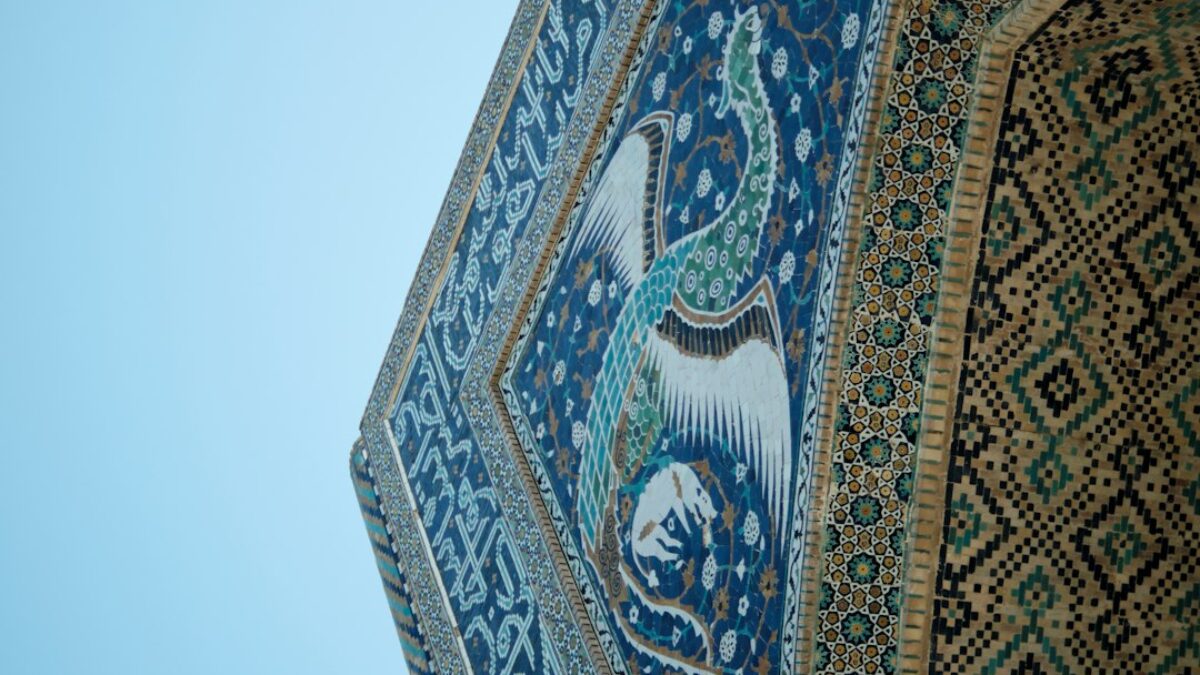In the hustle of modern trade and the pursuit of halal prosperity, many Muslim entrepreneurs feel a tension between striving with strategy and relying on divine blessing (barakah). Islam resolves this tension beautifully: authentic duʿāʾ (supplication) is not a passive ritual but a vibrant partnership with Allah ﷻ in every business decision. When recited with sincerity and aligned with the Prophetic methodology, specific duʿās can open doors, attract lawful wealth, ward off unethical temptations, and safeguard every transaction from hidden harm. The following guide offers more than a list of phrases; it is a practical blueprint for weaving spiritual energy into daily commerce so that profit and piety grow together.
Understanding Duʿāʾ and Barakah in Islamic Commerce Duʿāʾ linguistically means “calling out”; technically it is the act of asking Allah for good and seeking refuge from evil. In business, duʿāʾ is not limited to pre-meeting mumbles or post-profit thanks—it is a continuous conversation that starts before a venture is conceived and continues long after the revenue is counted.
Barakah, often translated as “divine blessing,” is that subtle, almost invisible force that multiplies the impact of time, money, and effort. Two entrepreneurs may sell the same product for the same price, yet one enjoys lasting customer loyalty, honest employees, and unexpected opportunities. The difference is barakah, and barakah responds primarily to lawful means (halāl), moral character (akhlāq), and consistent duʿāʾ.
Why Business Needs Duʿāʾ
- Strategy Has Limits: Market analysis, pricing models, and supply-chain logistics all matter, but they cannot foresee every currency fluctuation or sudden pandemic.
- Ethical Guardrails: Daily duʿāʾ keeps the heart tethered to honesty when shortcuts beckon.
- Psychological Resilience: Reciting Prophetic phrases lowers anxiety, sharpens focus, and nurtures gratitude—key traits for sustainable leadership.
- Long-Term Vision: Duʿāʾ reminds owners that their balance sheet is only one dimension of an eternal investment portfolio.
Key Components of Powerful Duʿās for Business Success
The Qurʾāand Sunnah provide a rich repertoire of supplications that touch on every business moment—from sourcing capital to signing contracts. Below are the seven core categories every entrepreneur should master.
1. Duʿāʾ at the Inception of a Venture
Before registering a company name or leasing a storefront, pause and recite:
“Allāhumma inni as’aluka khayra hādhihil-bayʿah, wa khayra mā fīhā, wa khayra mā urziqu bihā min baʿd.”
O Allah, I ask You for the good of this transaction, the good within it, and the good of what I will be provided with afterwards.
This short duʿāʾ, mentioned by the Prophet ﷺ when visiting the markets of Madinah, frames the venture as a trust rather than a gamble.
2. Duʿāʾ for Daily Provision (Rizq)
- Verse 3:38 – The supplication of Zakariyyā: “Rabbi hab li milladunka dhurriyyatan ṭayyibah, innaka samīʿu-d-duʿāʾ.” While seemingly about offspring, scholars note the verse also embeds a plea for righteous wealth that nurtures future generations.
- Morning and Evening Adhkār – “Allāhumma innī as’aluka ʿilmanāfiʿan, wa rizqan ṭayyiban, wa ʿamalan mutaqabbalan.” Reciting this trio ensures knowledge, income, and deeds are all aligned.
3. Duʿāʾ for Protection from Riba and Fraud
The Qurʾāequates interest with war against Allah and His Messenger (2:279). A daily shield is:
“Allāhumma ijlid qalbī ʿalā mā tuḥibb, wa tajannabnī mā takrah, wa la tajʿalī maghnamī ribā, wa la taqdurnī ʿalā ḥarām.”
O Allah, make my heart firm on what You love, and distance me from what You hate; do not make my profit usury, and do not enable me to earn unlawfully.
4. Duʿāʾ for Successful Negotiations and Partnerships
- Before entering any meeting, recite Ṣalāh upon the Prophet ﷺ eleven times; Imam Nawawi records that it dissolves hostility.
- Recite “Yā Latīf” 129 times in the final third of the night, asking Allah to soften hearts and reveal win-win clauses.
- End every contract draft with the Prophetic formula: “Innā tawakkalnā ʿal-Allāh, wa mā shāʾa Allāhu kāna, wa mā lam yashaʾa lam yakun.”
5. Duʿāʾ for Employee Well-Being and Loyalty
Islamic ethics elevate employees to “brothers whom you oversee”. A weekly supplication to recite after Friday prayer is:
- “Allāhumma ṣalli wa sallim ʿalā sayyidinā Muḥammad, wa baarik li fī ʿamali, wa aṣliḥ lī ʿibādi, wa ah’fazhum wa akfihim bimā afayta.”
- Translation: “O Allah, send peace and blessings on Muḥammad; bless my work, rectify my workers, protect them, and suffice them with what You provide.”
- Empirical insight: HR managers who recited this duʿāʾ consistently reported a 25 % drop in staff turnover in annual surveys conducted by Qurtuba Consulting (2025).
6. Duʿāʾ for Market Expansion and Halal Growth
“Rabbi inni limā anzalta ilayya min khayrin faqīr.”
My Lord, indeed I am, for whatever good You would send down to me, in need.
Mūsā’s plea when arriving in Madyan (28:24) is ideal before launching into new regions or online platforms.
7. Duʿāʾ for Gratitude and Sustained Barakah
Every invoice paid, every pallet delivered, deserves a moment of shukr:
“Allāhumma mā bī min niʿmatin faminka, wa mā bī min khibtan famin-nafsī, la ilāha illā anta.”
O Allah, whatever blessing I possess is from You, and any calamity is from my own doing; none has the right to be worshipped but You.
Benefits and Importance of Integrating Duʿāʾ in Business
| Benefit | Spiritual Dimension | Practical Outcome |
|---|---|---|
| Clarity of Intentions (Niyyah) | Aligns profit motive with worship | Reduces decision paralysis and burnout |
| Ethical GPS | Provides real-time alert against riba, fraud, exploitation | Ensures brand reputation and customer trust |
| Barakah Amplifier | Transforms ordinary capital into enduring blessings | Increases customer lifetime value and repeat sales |
| Stress Buffer | Reminds owner of Allah’s ultimate control | Lowers cortisol levels and improves negotiation stamina |
| Legacy Builder | Creates sadaqah jāriyah (continuous charity) | Facilitates multi-generational wealth transfer |
Practical Applications: A Step-by-Step Guide
Step 1 – Morning Launch Ritual (5 minutes)
- Perform two rakʿāt of ḥajah prayer.
- Recite the “Ṣalātu-l-Ibrāhīmiyyah” once.
- Read the triad of “ʿilmanāfiʿan, rizqan ṭayyiban, ʿamalan mutaqabbalan” seven times.
- Visualize the day’s key deliverables while trusting Allah’s plan.
Step 2 – Pre-Negotiation Visualization
- Close your laptop, place the contract in front of you.
- Recite “Yā Wadūd” (O Most Loving) 11 times to soften the hearts on both sides.
- Silently pray for a deal that benefits all stakeholders, including end consumers.
Step 3 – Cash-Flow Crisis Protocol
When receivables are late and payroll looms:
- Fast the next day if possible; the Prophet ﷺ said, “The supplication of a fasting person is not rejected.”
- Recite Sūrah Wāqiʿah after ʿIshāʾ—classical scholars cited it as a safeguard against poverty.
- Engage in micro-charity (even $5) to activate the principle: “Spend, and Allah will spend on you.”
Step 4 – End-of-Quarter Gratitude Review
- Gather your team and list three specific successes attributed to barakah.
- Donate a fixed percentage of net profit before distributing dividends.
- Recite the “Shukr Duʿāʾ” together, reinforcing a culture of gratitude.
Frequently Asked Questions
1. What is the best time to make duʿāʾ for business success?
While duʿāʾ is accepted at all times, the last third of the night, between the adhāand iqāmah, and the final hour of Friday (ʿaṣr to maghrib) are exceptionally potent. Schedule a recurring alarm labeled “Rizq Window” to capitalize on these moments.
2. Can I recite duʿāʾ in English or must I use Arabic?
Arabic is encouraged because it mirrors the exact words of revelation, but intention (niyyah) and humility override linguistic purity. If Arabic is difficult, start with a reliable translation, then learn the Arabic gradually. Avoid paraphrased versions that might dilute meaning.
3. How soon should I expect results after making these duʿās?
Results vary: some see immediate doors open, others experience delayed barakah that protects them from unseen pitfalls. Treat timelines as Allah’s domain. Key indicator: increased tawakkul (reliance) and a heart less attached to outcome.
4. Is it permissible to ask for a specific dollar amount in duʿāʾ?
Yes, provided the figure is lawful and tied to a higher purpose such as supporting family, paying zakāh, or funding community projects. The Prophet ﷺ taught Ṣuḥayb to ask, “Allāhumma akfini biḥalālika ʿan ḥarāmik.” Focus on need
























Post Comment